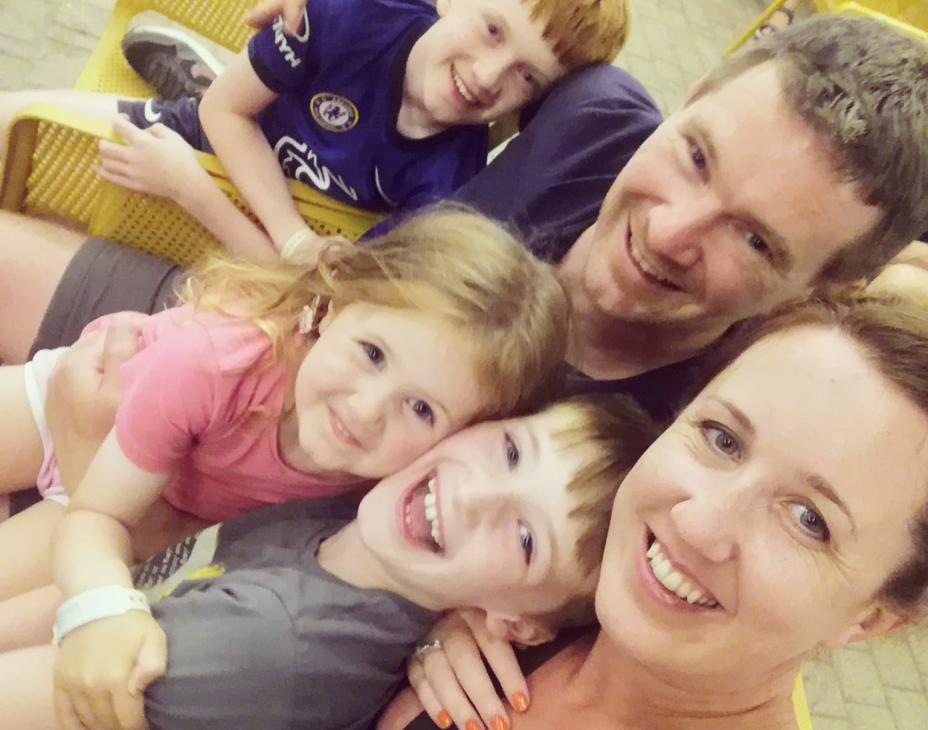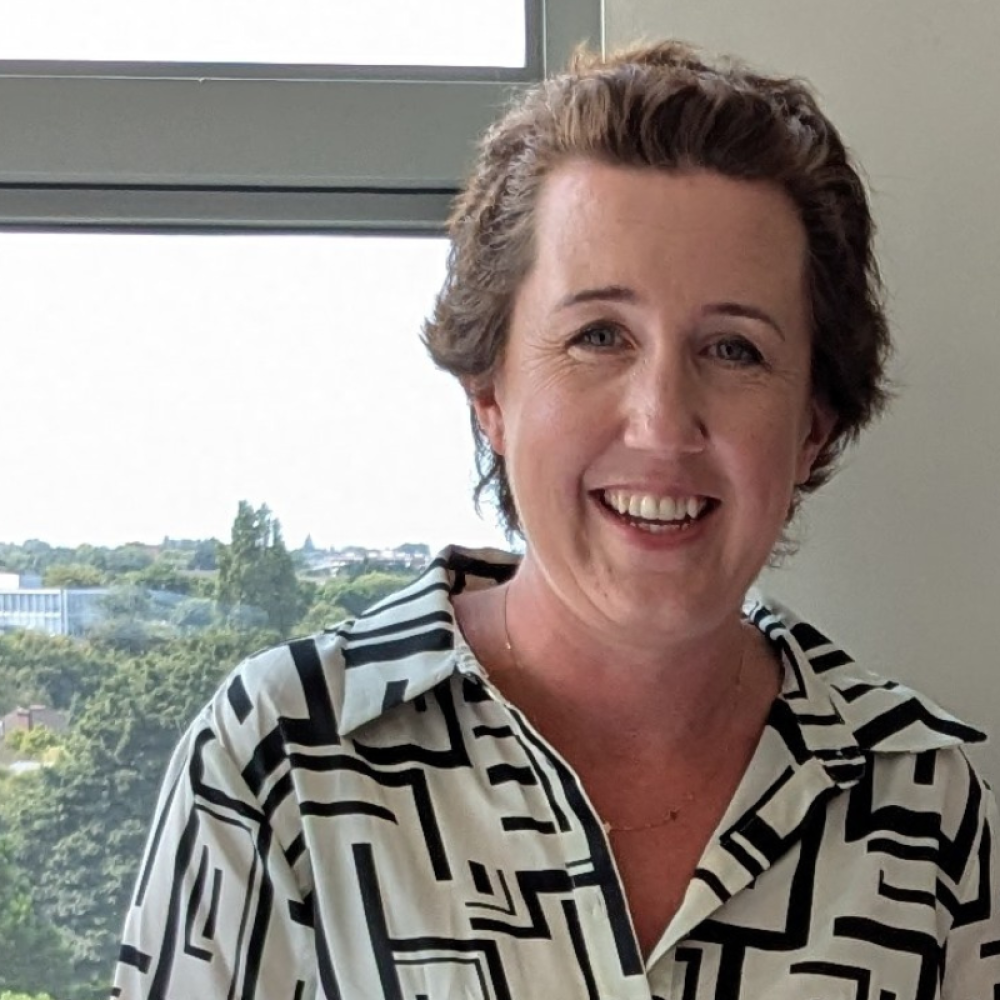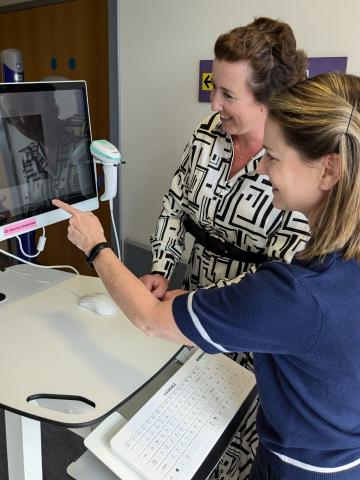A working mother of three children reflects on the challenges of balancing motherhood and breast cancer, including how a Conquer Cancer-funded researcher provided her with the best care possible.

After processing the shock of her diagnosis, Aisling’s mind immediately went to her three kids. She and her husband would have to navigate explaining breast cancer in age-appropriate terms while doing the best for their children.
“One of our first questions was, how do we tell the kids? Do we tell them or not tell them? How do we handle it?” recalls Aisling, based in Ireland. “We didn't tell them initially. Then within a few days, we sat them down and just explained it like, “Mommy’s going to be sick. I’ll be visiting the hospital, and I'm going to be fine, but it's going to be a tough few months.”
Treatment Informed by Research
Within a few weeks, Aisling began an intense treatment regimen, including radiation, surgery, and numerous rounds of chemotherapy. Her provider, Dr. Michaela Higgins, a consultant medical oncologist at St. Vincent’s University Hospital in Dublin, Ireland, was there to support her at every turn.
A two-time Conquer Cancer grant recipient, Dr. Higgins leads clinical research for patients with breast cancer, working to advance treatment and care for this population. She drew from patient-centered research progress to help inform Aisling’s recommended course of care.
“Aisling received a multi-drug regimen, an approach made possible by the thousands of women who went before Aisling and took part in clinical trials. And from those very kind, selfless women, we've learned how best to treat breast cancer,” Dr. Higgins explains. “For example, we’ve learned that if we give treatments that target HER2—a protein found on breast cancer cells and that drives tumor growth—in addition to chemotherapy, to women in Aisling’s position, it halves the risk of the cancer coming back. That's massive, and really impactful.”
“Take The Help, Don’t Be a Hero”
However, undergoing this multi-faceted, aggressive treatment plan meant Aisling needed outlets to help her effectively cope with the physical and emotional challenges that can accompany it.
“Between the chemotherapy, the two surgeries and the radiation, chemotherapy was by far the toughest. But I had a lot of time on my own to think, and overthink at times,” Aisling says. “You kind of spend a lot of time in your head, which isn't always wise when you're going through cancer treatment.”
As the primary organizer and planner of her family, Aisling already had a lot on her plate, even before her cancer journey. One of the biggest lessons she learned was to accept help from others and carve out quality time for herself.
“Take the help, don't be a hero. That doesn't help anyone,” Aisling says. “One of my best friends said, ‘It's good to have an outlet just for you.’ So, I'd either try playing a bit of tennis, or I'd go to her house and we'd binge watch TV. I'd let out all the fears and worries that I couldn't share at home. I wouldn't want to upset the kids. I think it's important to have an outlet like that.”
Bringing a Brighter Future to Breast Cancer Care
Today, Aisling is on maintenance therapy and has a good prognosis. She’s returning to full-time work and continuing to pursue meaningful hobbies with friends, all while raising three children and being the nucleus of her family.
“It still kind of seems surreal, what's happened to me over the last 12 months. I'm slowly getting back to what is now my new normal,” Aisling says. “It's given me a lot of perspective.”
As Dr. Higgins continues monitoring Aisling’s health, she also persists in advocating for investments in clinical trial research and works to drive treatment advancements for patients with breast cancer.
“We’re doing reasonably well today, but there's room for improvement. This is why research is so important, and why people should be funded—to have time to devote to thoughtful, impactful clinical trials that better serve patients,” Dr. Higgins says. “When we finally do get to conquer cancer, it will be providing every person with the same opportunity to prevent cancer where possible or detect it early. And we have some way to go to work towards that goal.”
Meanwhile, Aisling works toward applying the lessons she learned from her cancer experiences, all while doing the best she can—not only for her family, but also for herself.
“I don't sweat the small stuff,” Aisling says. “I don't get nervous about things anymore, because what's the worst that could happen? It's shown me that I have a strength that I never knew I had.”

